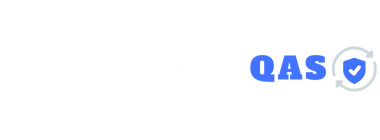Running a small business is no easy task. With limited resources and tight margins, even a minor incident can have a significant impact on your finances. According to the National Safety Council, workplace injuries cost U.S. businesses over $167 billion in 2022, with small businesses bearing the brunt of these costs. For many small business owners, a single costly incident could mean the difference between survival and shutting down.
To protect your business, taking a proactive approach to risk management is crucial. Conducting a thorough hazard assessment is one of the most effective strategies you can employ to mitigate risks before they turn into costly claims.
But where do you begin? This is where a loss control specialist comes in. These experts are dedicated to helping small businesses like yours navigate risk mitigation and are essential for a successful hazard assessment.
“At Central, our loss control specialists are skilled in assessing common hazards for businesses and providing tailored suggestions to mitigate those risks. They also address unique hazards specific to each business,” explains Anne Russo, Director of Small Business Underwriting at Central Insurance.
In this article, we’ll explore the role of a loss control specialist, how they can help address industry-specific hazards, and the long-term benefits of working with one. Whether you’re a new business owner or a seasoned entrepreneur, understanding the importance of loss control can be a game-changer for your business.
What is a Hazard Assessment?
Hazard assessments are crucial processes that pinpoint potential risks within your business environment. They assess the likelihood of a risk occurring and its potential impact. This proactive approach is essential for small businesses as it helps uncover risks that might otherwise go unnoticed until an incident happens.
A comprehensive hazard assessment involves these four steps:
1. Identifying Hazards
The first step is to systematically identify possible workplace hazards, ranging from physical hazards like unsafe machinery to ergonomic risks, chemical exposures, and even cybersecurity threats. While some risks are universal, others may be specific to your business.
“Some hazards apply to all businesses, regardless of size. For instance, a clothing boutique could face the same risk of a customer tripping over a rug as a larger retail operation,” Russo points out.
Even though there are broad risks associated with every industry, hazards are unique to each business, and there’s no one-size-fits-all checklist to reference. It’s essential to understand the specific risks that could impact your operations.
Learn More: Loss Control for Office Spaces.
2. Evaluating Risks
After identifying risks, the next step is to assess the likelihood of each hazard leading to an incident and the severity of the potential consequences. This evaluation helps prioritize which risks require immediate attention, allowing small businesses to focus their efforts on the most critical risks with their limited resources.
3. Implementing Controls
Once risks are evaluated, it’s crucial to implement control measures to mitigate them. These controls can be engineering, administrative, or personal protective equipment measures aimed at either eliminating the hazard or reducing the risk to an acceptable level.
“Investing early on in risk prevention is key for small businesses. Actions like regular equipment maintenance, employee background checks, or installing security systems can prevent losses or minimize recovery costs,” Russo advises.
4. Monitoring and Reviewing
A hazard assessment is an ongoing process that requires regular monitoring and reviews to ensure the effectiveness of the controls in place and to identify new risks as your business evolves.
Regular hazard assessments enable small businesses to proactively manage risks, enhance workplace safety, and potentially reduce insurance premiums by demonstrating a commitment to risk management. In addition to a thorough risk assessment and implementing necessary changes, having Workers’ Compensation insurance is vital for ensuring your employees’ safety.
Did You Know? The Central Nurse Hotline offers 24/7 support for employees who sustain work-related injuries. A registered nurse assists employers with providing appropriate medical advice and reporting injuries correctly to the insurance company.
Get more insights like this delivered to your inbox. Subscribe to the Central Blog below.
The Role of a Loss Control Specialist in Hazard Assessments
A loss control specialist is a risk management expert who guides businesses through thorough hazard assessments, providing tailored recommendations for risk mitigation. Their role is particularly valuable for small businesses that may lack in-house expertise to identify and manage potential hazards. Additionally, they can help your insurance carrier understand the coverage your business requires.
Learn More: The Benefits of a Dedicated Loss Control Specialist.
“At Central, our loss control specialists act as the eyes and ears of underwriters, identifying factors that enhance risk understanding,” Russo explains. “This enables us to accurately price and tailor policies for businesses.”
Here are three ways in which a loss control specialist can assist your business during a hazard assessment, as outlined by Russo:
- On-Site Evaluations: Qualified businesses may benefit from a loss control specialist visiting their premises to assess workplace risks and recommend solutions.
- Risk Analysis: With industry-specific knowledge, specialists can identify hazards that may not be immediately apparent, addressing common or unique risks faced by businesses in your industry.
- Tailored Recommendations: Specialists offer actionable suggestions to mitigate identified hazards, fostering a safer work environment and reducing the likelihood of accidents and associated costs.
Construction Expertise: How Central Helps Contractors with Hazard Assessments
While Central provides loss control resources and recommendations across various industries, insured contractors receive additional support. The construction sector is inherently risky, with hazardous job sites and potential high claims costs. Central’s expertise in construction is tailored to assist businesses in this challenging industry.
Matt Sbordone, Central’s construction underwriting specialist, combines technical knowledge with relationship building to support policyholders. Sbordone works with the Construction Underwriting team to provide expertise and solutions. Jim Johnson, Central’s loss control construction specialist, assists construction clients in evaluating job site risks.
Learn More: Loss Control Tips for Construction Companies.
Central prioritizes supporting policyholders in preventing losses as a crucial part of its commitment to caring for their clients. Policyholders benefit from loss control specialists who focus on providing the best practices for loss control and are committed to keeping businesses safe.
The Central Difference
Central insures and supports businesses across various sectors, understanding that each business is unique. Offering flexible business insurance policies, programs, and resources tailored to your coverage needs. While not all businesses qualify for loss control specialist services, Central offers extensive support to all policyholders.
“Policyholders have access to self-service resources like a risk management library that provides templates, safety training videos, and links to OSHA resources for smaller employers,” Russo notes.
While the policyholder manages any risk control program developed from the hazard assessment, Central’s consultants are available to assist. To explore loss prevention assistance and safety services, reach out to a Central agent today.









